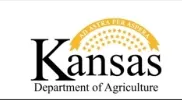Released: Oct. 7, 2020
Kansas Profile – Now That’s Rural: Joni Albers, Hungry Gardens
By Ron Wilson, director of the Huck Boyd National Institute for Rural Development at Kansas State University
A blue ribbon. For millions of 4-H youth through the years, blue ribbons have been awarded in recognition of a high-quality project.
For Joni Albers, the founder of the Hungry Gardens in California, her first blue ribbon helped launch a lifelong interest in horticulture. She is now using those skills to produce healthy food for urban neighbors.
Originally from Hoxie, Joni’s roots go deep in rural Kansas. Her grandparents were dairy farmers, and her family always had a large garden. “My mother got me started in gardening,” Joni said. “I had my first garden at six years old.”
She was also a member of the Solomon Valley 4-H Club. In her first year, she took her homegrown green beans to the Sheridan County Fair and won a blue ribbon. “That started it all,” she said. Joni was active in 4-H, taking on projects such as sewing, art, bucket calf, and woodworking, but horticulture was her favorite.
Joni went to college in Denver and worked as a designer before taking a technology position in New York City. When her company allowed her to transfer to California, Joni settled in Sun Valley.
Unlike in New York City, she now had some land. “I wanted to garden as I had in my youth,” Joni said. She started a small garden, but the garden space quickly grew. Soon she had about 4,000 square feet, and her neighbors were interested in her produce.
Locally grown products were hard to come by in the region. “There was one produce stand in the area, but it was only open one day a week, and they didn’t have locally grown produce,” Joni said.
She decided to launch her own business as an urban produce farm. She named it the Hungry Gardens. She uses innovative technology to communicate with customers and focuses on heirloom produce.
These are not plain, everyday tomatoes, for example. “Healthy food and culinary experiences underpin everything we grow at the Hungry Gardens,” her website says.
“I try to find the rarest heirloom vegetables,” Joni said. “We specialize in growing unique vegetables that are not available commercially but have historical and indigenous value.”
For example, Joni offers many products which I hadn’t heard of, such as cinnamon basil, blacktail watermelons, red noodle beans, tigger melons, violet sparkle peppers, thai lime, pineapple sage, cucamelons, and many more. She works with various partners, including several chefs.
“I want to provide an experience for people, and give them new things to try,” Joni said. Her market is hyperlocal, and she offers pickup and delivery. Hungry Gardens also offers seedlings for such items as heirloom tomatoes, squash, zucchini and flowers.
Some cities have used community-supported agriculture, where consumers pay a fee and receive whatever produce happens to be in season. Joni goes a step further by enabling consumers to select their products. “I allow consumers to curate their own boxes,” Joni said. “That means they get what they really want.”
She updates the inventory of fresh products each day, and her customers get to choose among the freshest items.
Joni uses an iPhone app called Cropswap, to offer Heirloom CropBoxes by subscription. These include a variety of heirloom vegetables not offered on her website. The boxes come with scannable codes that connect to recipes from area chefs, plus ideas for preparation of these unusual products.
It’s a remarkable business, inspired by Joni’s early days as a 4-H’er at the rural community of Hoxie, population 1,201 people. Now, that’s rural.
Her products are only available in California, but you can learn about her company by going to www.hungrygardens.com.
A blue ribbon. For 4-H youth, it symbolizes a high level of achievement. For Joni Albers, that first blue ribbon also helped inspire a lifelong interest in horticulture which has now become an innovative business. We commend Joni Albers of the Hungry Gardens for making a difference with her entrepreneurial approach to produce. In her case, a blue ribbon helped encourage a green thumb.
Thanks to K-State Research and Extension Twin Creeks District Director Stacy Brown for this story idea.
Audio and text files of Kansas Profiles are available at http://www.kansasprofile.com. For more information about the Huck Boyd Institute, interested persons can visit http://www.huckboydinstitute.org.
-30-
FOR PRINT PUBLICATIONS: Links used in this story
The Hungry Gardens: www.hungrygardens.com
The mission of the Huck Boyd National Institute for Rural Development is to enhance rural development by helping rural people help themselves. The Kansas Profile radio series and columns are produced with assistance from the K-State Research and Extension Department of Communications News Media Services unit. A photo of Ron Wilson is available at http://www.ksre.ksu.edu/news/sty/RonWilson.htm. Audio and text files of Kansas Profiles are available at http://www.kansasprofile.com. For more information about the Huck Boyd Institute, interested persons can visit http://www.huckboydinstitute.org.
K‑State Research and Extension is a short name for the Kansas State University Agricultural Experiment Station and Cooperative Extension Service, a program designed to generate and distribute useful knowledge for the well‑being of Kansans. Supported by county, state, federal and private funds, the program has county extension offices, experiment fields, area extension offices and regional research centers statewide. Its headquarters is on the K‑State campus in Manhattan. For more information, visit www.ksre.ksu.edu
Column by:
Ron Wilson
785-532-7690




